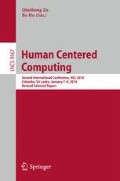Abstract
Most structured data are stored in relational databases containing multiple semantically linked relations. Mining interrelated data in relational databases is important in many real-world applications. This paper proposed a genetic K-means membranes clustering algorithm (GKM), which combine membrane computing and genetic K-means algorithm to solve the problem of clustering on multi-relational data set. In this paper, we design a tissue-like P system with two-level membranes structure, each membranes searches the best threshold by the evolution rules and communication rules. The algorithm makes full use of the parallelism of P system, the good convergence of genetic algorithm and the local search ability of K-means algorithm, and achieves good partitioning for a data set. Experimental results show that the proposed algorithm has better convergence accuracy and computational efficiency.
Access this chapter
Tax calculation will be finalised at checkout
Purchases are for personal use only
References
Chang, D., Zhang, X., Zheng, C.: A genetic algorithm with gene rearrangement for k-means clustering. Pattern Recogn. 42, 1210–1222 (2009)
Maulik, U., Bandyopadhyay, S.: Genetic algorithm based clustering technique. Pattern Recogn. 33, 1455–1465 (2000)
Bandyopdhyay, S., Saha, S.: GAPS: a clustering method using a new point symmetry-based distance measure. Pattern Recogn. 40, 3430–3451 (2007)
Peña-Cantillana, F., Díaz-Pernil, D., Christinal, H.A., et al.: Implementation on CUDA of the smoothing problem with tissue-like P systems. Nat. Comput. Simul. Knowl. Discovery, 184 (2013)
Wang, J., Wang, J., Ke, Q., et al.: Fast approximate k-means via cluster closures. In: Baughman, A.K., Gao, J., Pan, J.-Y., Petrushin, V.A. (eds.) Multimedia Data Mining and Analytics, pp. 373–395. Springer International Publishing, Switzerland (2015)
Acknowledgment
Project supported by National Natural Science Foundation of China (61170038,61472231), Jinan City independent innovation plan project in College and Universities, China (201401202), Ministry of education of Humanities and social science research project, China (12YJA630152), Social Science Fund Project of Shandong Province, China (11CGLJ22), outstanding youth scientist foundation project of Shandong Province, China (BS2013DX037).
Author information
Authors and Affiliations
Corresponding author
Editor information
Editors and Affiliations
Rights and permissions
Copyright information
© 2016 Springer International Publishing Switzerland
About this paper
Cite this paper
Zhao, D., Liu, X. (2016). A Genetic K-means Membrane Algorithm for Multi-relational Data Clustering. In: Zu, Q., Hu, B. (eds) Human Centered Computing. HCC 2016. Lecture Notes in Computer Science(), vol 9567. Springer, Cham. https://doi.org/10.1007/978-3-319-31854-7_106
Download citation
DOI: https://doi.org/10.1007/978-3-319-31854-7_106
Published:
Publisher Name: Springer, Cham
Print ISBN: 978-3-319-31853-0
Online ISBN: 978-3-319-31854-7
eBook Packages: Computer ScienceComputer Science (R0)

